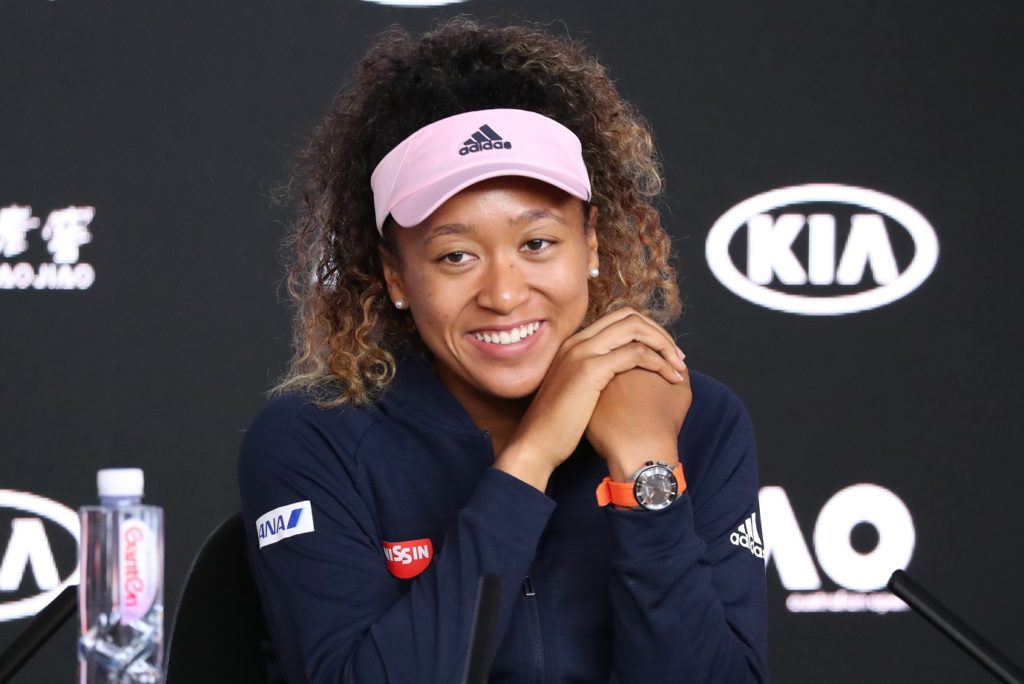Several new mothers are marking their return to tennis at the Australian Open this year, signalling a shift in how the athletic careers of women across a growing number of sports are continuing and expanding after having a baby.
Some say the focus from commentators on the fact three former Australian Open champions, including Naomi Osaka, Angelique Kerber and Caroline Wozniacki, are making their Australian Open comebacks this year for the first time as mothers is overdone and overhyped, given how little is said about male athletes who’ve recently become fathers.
But hearing these women share their journeys to becoming new parents and watching them on court displaying incredible form and fitness is a win for the game and a win for supporting the aspirations of mothers across all industries. It’s also an opportunity to move the postbirth conversation away from weight loss and body shape to being about how women can set themselves up to recover, regain strength and discuss the role of support mechanisms in enabling women to meet the demands of having a newborn alongside having a career.
Osaka and Kerber have both given birth in the past year, while Wozniacki returns to the Open after leaving tennis in early 2020 to have her first child in early 2021 and second in 2022.
On Monday, Osaka lost her first tournament match 6-4, 7-6(2) to Caroline Garcia.
But Osaka’s raw vulnerability in opening up about her disappointment and having to remind herself how far she’s come over the past year marked a different kind of win.
Monday’s match was Osaka’s first in a grand slam tournament in fifteen months, and came just six months after giving birth to her daughter.
“I have to tell myself: ‘Hey six months ago you were pregnant,” she said following the defeat.
Giving birth is a massive physical feat, coming after months of carrying a baby, that can have long-lasting physical injuries. As Osaka said in a recent interview, “having a baby completely destroys your pelvic floor”.
Another aspect of Osaka’s journey that will undoubtedly be on new parents’ minds is what comes after the physical and emotional feat of being pregnant and giving birth. Those first few months with a newborn (often referred to as a fourth trimester) involves sleepless and unpredictable nights, months of recovery after carrying and delivering a child, as well as the emotional adjustment and transition that comes with becoming a parent.
Osaka hinted at the adjustment she was experiencing during the post-match interview.
She suggested she’s not quite feeling herself nor at her physical peak. Hence having to remind herself that it’s been less than half a year since she gave birth.
Then there is the “voice in her head” reminding her about the changes she’s experienced and generating a little of the all-too-familiar “imposter” feeling that new parents can especially feel strongly in the months after returning to work.
Osaka described that inner voice as saying, “What are you thinking you can come back and immediately start winning matches?”
“I kind of always expect myself to stand a chance anyway. So I guess just being nice to myself is like a thing that I learned in my time away,” she said.
Osaka also uses her platform and experience to front a public campaign calling for paid family and medical leave to be passed in the United States, which remains one of just six countries globally with no national paid parental leave policy.
Just prior to the tournament, Osaka shared with Glamour how she has been profoundly changed by motherhood. She described pain and challenges during the postpartum period and how much her life transformed overnight, but she highlighted the positives she’s taken on, including that she feels strong following childbirth and that she feels like she can “do anything and nothing will bother me”. Nor do the opinions of others bother her anymore.
Osaka returned to training 15 days after giving birth — a challenge that is not for everyone, and one made possible through the team she had around her. She said she immediately thought she had to do “a lot of sit ups” to rebuild her pelvic floor as she struggled to get out of bed in the early days, but quickly learned that rather she needed to do “deep pelvic floor work”. She had the team and information to help her learn these things — something she concedes not a lot of people have access to.
This tournament is highlighting how stereotypes continue to be smashed regarding what female athletes can and can’t do after having a baby. Keep an eye on favourite Elina Svitolina, who is yet to win a grand slame but has cemented herself as one of the tour’s best players after returning from parental leave in the first half of 2023, including by going on to a superb run at Wimbledon.


